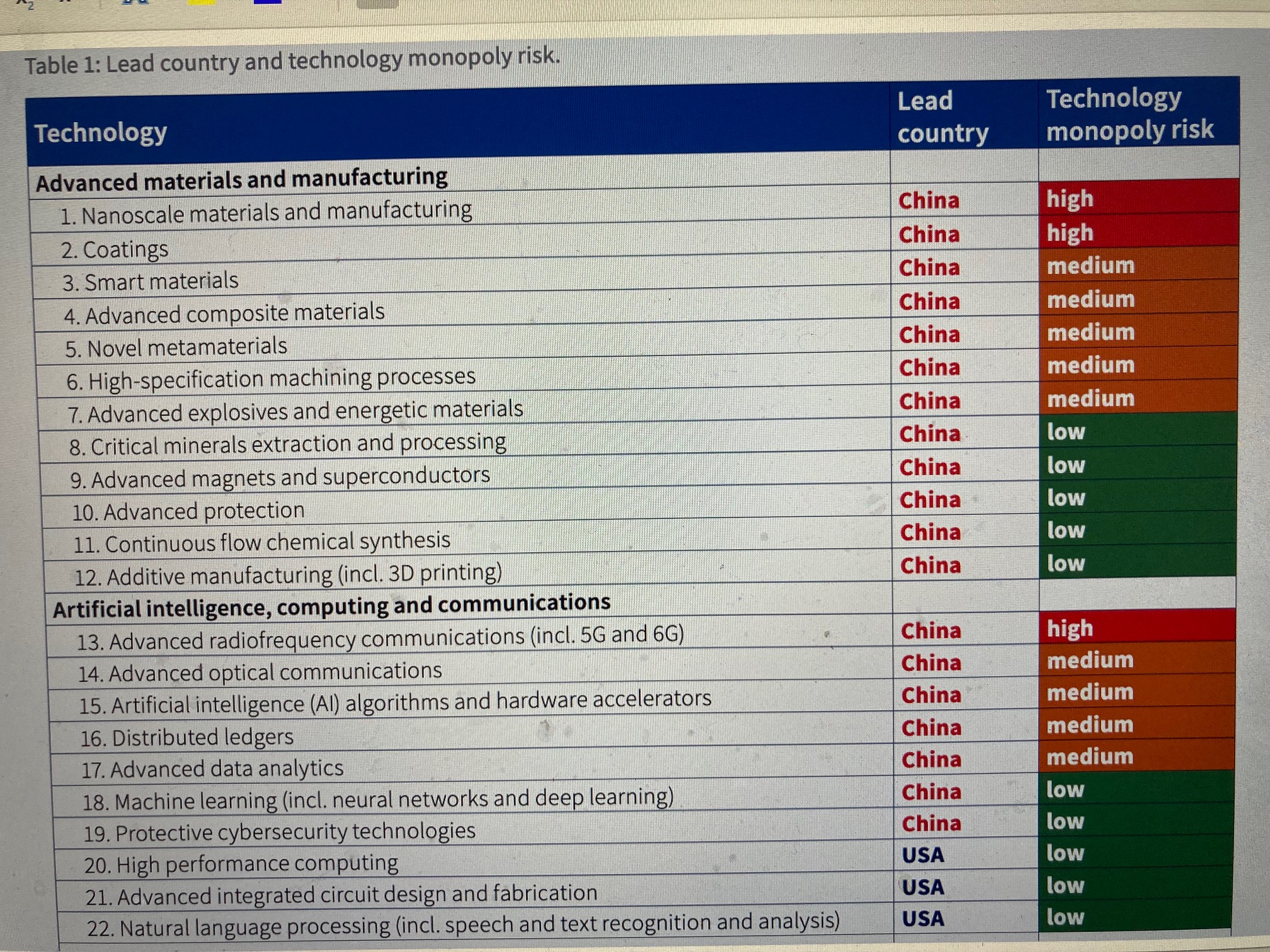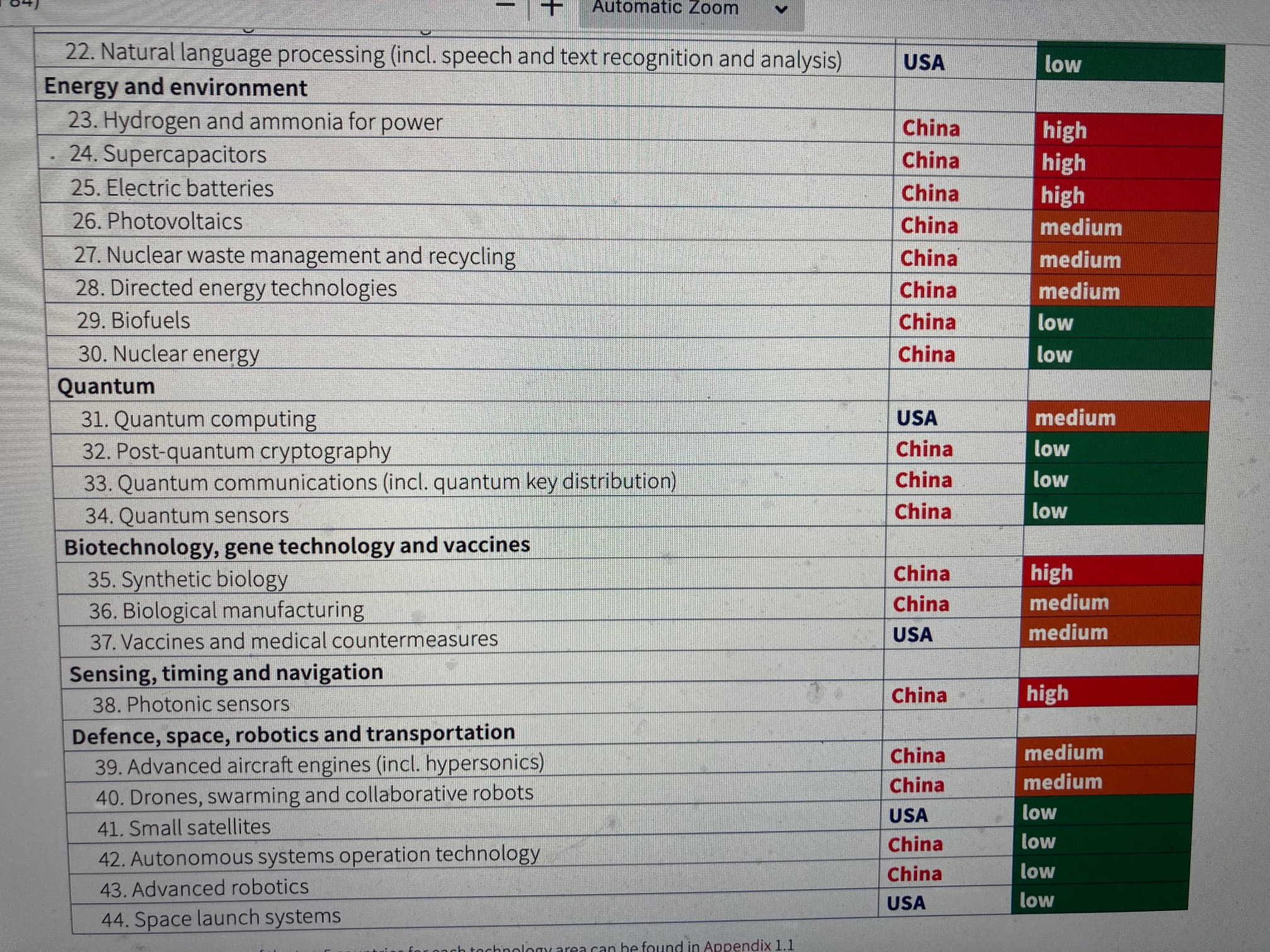Move along. Nothing to see here. La la la
Every now and then some people in the US get excited and worried about Chinese gains in science, technology, engineering and STEM education - that China is beating the US in the critical tech race to the future. The comforting reaction is always on the order of, "Yes, but. We have freedom of thought and speech and eventually the authoritarian regime will self-destruct. And we will always lead in DEI technology."
Now comes The Australian Strategic Policy Institute (ASPI), a credible independent think-tank. One of its recent projects has been to investigate the state of research in 44 critical technologies around the world.
Results are in their Critical Technology Tracker report https://www.aspi.org.au/report/critical-technology-tracker.
From an Al Jazeera news report on the ASPI study -
China leads the world in 37 out of 44 critical technologies, with Western democracies falling behind in the race for scientific and research breakthroughs, a report by an Australian think tank has found.
China is in a position to become the world’s top technology superpower, with its dominance already spanning defence, space, robotics, energy, the environment, biotechnology, artificial intelligence (AI), advanced materials and key quantum technology, according to the report by the Australian Strategic Policy Institute (ASPI).
The key areas dominated by China include drones, machine learning, electric batteries, nuclear energy, photovoltaics, quantum sensors and critical minerals extraction, according to the Critical Technology Tracker released on Thursday.
China’s dominance in some fields is so entrenched that all of the world’s top 10 leading research institutions for certain technologies are located in the country, according to ASPI.
In comparison, the United States leads in just seven critical technologies, including space launch systems and quantum computing, according to ASPI, which receives funding from the Australian, United Kingdom and US governments, as well as private sector sources including the defence and tech industries.
The UK and India are among the top five countries in 29 of the 44 technologies, with South Korea and Germany making the top five in 20 and 17 technologies, respectively, the report said.
You can read the ASPI report yourself. Link above.
Figures below are the ASPI assessment on the 44 technologies.
One can quibble with their assessment of dominance and future monopoly risk. But the overall assessment is pretty clear. Apologies on the poor quality of the images.


I have no particular expertise in commenting on any of these assessments. But no snarky comments needed.
